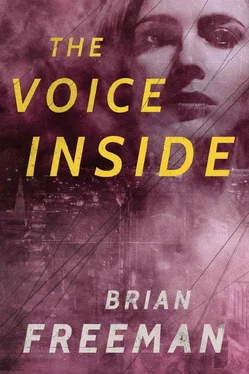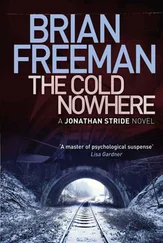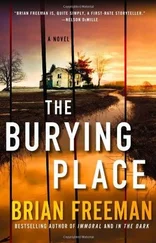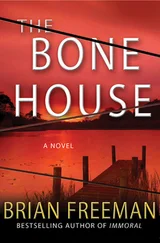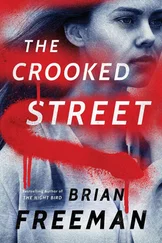The parents and the older people in the gathering gravitated to the chairs, and Frost stayed in the back with the rest, which included siblings and children. He spotted Camille Valou, looking wealthy and pained in one of the armchairs. Their eyes met, and her mouth opened slightly in unhappy surprise. He remembered their confrontation and her grieved reaction as she studied the inscription on the back of Melanie’s real watch. La rêveuse.
Camille half stood from the chair, as if she were possessed by a desire to cross the room and slap him. Then she sat back down and looked away, biting her lip.
The stories began.
Dominika Lubin started. Her husband, who was very tall and several years older, sat next to her. She recalled the empty house after Natasha had gone away to college and how long the four years had felt while their daughter was away. Eventually, Natasha had moved home and taken a job with the parks department, which meant she could walk across the street to work in Stern Grove. Mother, father, and daughter had been able to have breakfast every day.
Until Rudy Cutter came.
After that, the house had felt empty again, as if Natasha had gone back to school; only this time, Dominika knew her daughter was never coming home.
Rae Hart’s father spoke next.
Then Gilda Flores. Then Camille Valou. Then Hazel Dixon’s husband, with their young son in his lap. Everyone was crying. Frost himself felt dizzy, hearing all the names again, victim after victim. He knew their faces, but he didn’t know them, not really, not until now. They were like the ghosts in the room, haunting the ones they’d left behind. He listened to the voices, but all he could hear in his head was the voice of Rudy Cutter over the phone, and he’d never felt angrier or more helpless in his life.
While he was consumed with his own thoughts, his mother spoke to him from across the room.
“Frost? Would you like to share something about Katie?”
They all looked at him. Every face turned to him expectantly. The silence was like the ticking of a clock. Tick tock. He thought about what he could say, but he had nothing. Heat gathered on his neck. His mouth felt dry. He ran his hand back through his brown hair and said, “I need some air.”
Just like that, he turned and bolted from the house. He slammed the door behind him. He crossed the street to the trees, where he steadied himself against one of the thick eucalyptus trunks. It was difficult to breathe. In the dense gloom of the woods, day felt like night.
Close by, someone spoke to him. “You part of the group?”
Frost glanced sideways and saw a man about his own age sitting on a fieldstone bench with his legs jutting out into the dirt. He held a cigar in his hand, leaching peppery smoke into the air. He wore a rust-colored sweater and jeans, and he had black hair and red glasses on his face.
“Excuse me?” Frost said.
“I saw you come out of the house. I figured you must be a member of the families.”
“I am. My name’s Frost Easton.”
The man pushed himself off the bench. He extended a hand, which Frost shook. “Robbie Lubin. Tash — Natasha — was my sister.”
“Katie was mine,” Frost replied.
Robbie dug in the pocket of his jeans, and his hand emerged with another cigar. “Want one?”
“No, thanks.”
“Tash always gave me a hard time about cigars. She said they stank. So naturally, I smoked them around her whenever I could.”
Frost smiled. “That sounds about right.”
Robbie gestured at the house. “The whole group-hug thing has never been my style. I prefer to grieve in my own way.”
“Me, too.” Frost tried to remember what he’d heard about Natasha’s brother. “Someone told me you were from Minnesota. Is that right? Or am I thinking of someone else?”
“That’s me,” Robbie told him. “I live in a suburb of Minneapolis called Maple Grove. I work for Medtronic. My parents can’t understand what I’m doing out there. They think of Minnesota as the frozen tundra.”
“I have some Minnesota roots of my own,” Frost said.
“Oh?”
“Well, if you believe my mother, they were taking a cross-country driving trip while she was pregnant with me, and they were debating baby names. Apparently, they were passing through Southern Minnesota, and they saw a highway sign pointing to the town of Easton in one direction and the town of Frost in the other. ‘Frost Easton.’ My mother took it as a sign from the universe.”
“I like it.” Robbie sucked on the cigar and blew out a cloud of smoke.
“So was Natasha older or younger?” Frost asked.
“Tash was four years younger than me.”
“Same with me and Katie.”
“Were the two of you close?” Robbie asked.
“Best friends since we were kids. We hung out together all the time. How about you?”
“As kids, not so much,” he replied. “I was a science geek. Tash was into athletics. A basketball player. She was freaky tall, like our dad. We did our own thing in those days, but that changed when she went to college. I was doing an internship at Medtronic, and as luck would have it, Tash got recruited to the U of M basketball team. So she moved in with me. We lived together all four years she was in school. At that point, we became super close.”
“But then she moved back to California?” Frost asked.
“Right. The winters out there weren’t for her. She hated them. And I think she felt bad having both of us so far away from our parents. I’m glad Mom and Dad had those couple of years with her living at home again. You know, as things worked out.”
“Yeah.”
Robbie studied him from behind his bright-red glasses. “You’re the cop, right? The one who found the watch?”
Frost nodded.
“My parents aren’t fans of yours,” Robbie told him. “They thought you should have kept your mouth shut. For what it’s worth, I told them they were wrong. I’m in a business where you can’t take shortcuts, and I don’t approve of anyone who does, even when they do it for the right reasons.”
“I appreciate that.”
“I can only imagine what an agonizing choice it was for you. You’re not a disinterested observer.”
“No.”
“Do you have a picture of Katie?” Robbie asked.
“Sure.”
Frost pulled his phone out of his pocket and called up the screen-saver photo he used. It showed him and Katie on a beautiful summer day at Alcatraz, the year before she was killed. Her head leaned against his shoulder; she had a big smile; and her hair was sunny blond. That was how he liked to remember her.
Robbie took a long look before handing the phone back to him. “You two look a lot alike.”
“Everyone says that,” Frost agreed. He added, “Do you have a picture of Natasha?”
“Of course.”
Frost had seen many pictures of Natasha Lubin over the years — including horrible ones from the crime scene — but he knew that Robbie was looking for an opportunity to show off his sister. That was what siblings did. Robbie pulled out his own phone and scrolled through a long series of pictures to find the one he wanted.
“This is us in my apartment in Minneapolis,” he told Frost, “when Tash was a senior.”
Frost turned the camera sideways to make the landscape image bigger. It was a sweet shot. Natasha was in her yellow basketball uniform, with long dark hair tied into a ponytail. She towered six inches over her older brother. Robbie looked younger and skinnier, with longer black hair but the same glasses. The two of them mugged for the camera, fighting playfully over the basketball that Natasha held in her big hands. They were obviously in Natasha’s bedroom; Frost could see basketball trophies lined up on a bookshelf behind them.
Читать дальше
